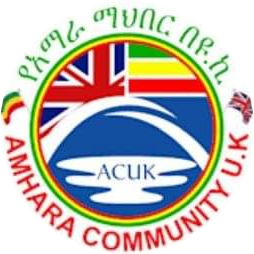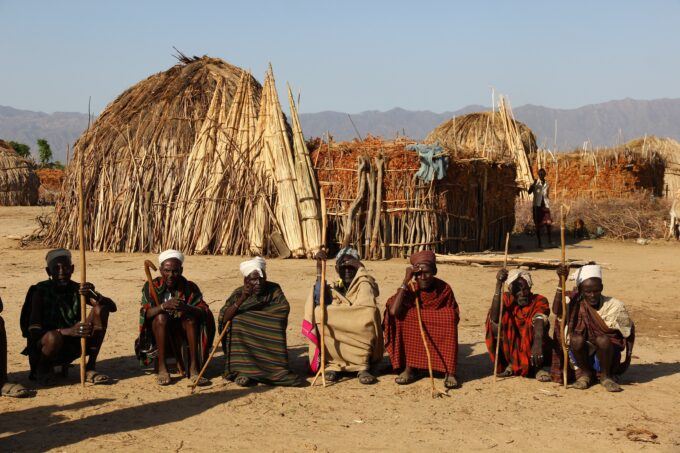JULY 3, 2023
When in 2018, Prime Minister Abiy Ahmed took office in Ethiopia, a wave of hope and optimism enveloped the nation. After 27 years living under the brutal TPLF (Tigray People’s Liberation Front) dominated EPRDF coalition, the people breathed a collective sigh of relief. Many Ethiopians living overseas, eager to contribute, returned to their beloved homeland; exiled opposition parties, media workers and activists were invited to return in a spirit of inclusion.
Publicly at least, PM Abiy said all the right things: he spoke of unity, democracy and human rights. And in September 2018, five months after taking office, the positive mood was cemented when a peace deal was agreed with President Isaias Afewerki of Eritrea. Hostilities (fueled by the TPLF, which had been going on for 20 years), came to an end, and in 2019 Abiy was awarded The Noble Peace Prize for his efforts. Unsurprisingly perhaps, Afewerki, who has successfully resisted global interference in Eritrea, was not included in the honor.
Optimism and national hope was quickly extinguished however, and the true repressive colors of Abiy and his regime were revealed; a controlling divisive methodology that has intensified year on year.
The sight of a despot masquerading as a lover of democracy is as repulsive as it is common. Leaders like Abiy, rule through fear, control, and the fermentation of social division. The antidote to their brutality, difficult to accomplish, is unity; sustained, peaceful, collective action (think Arab Spring e.g.). Against a united populous, focused and mobilized, no regime, no matter how cruel, can stand. Repressive regimes know this well, hence the focus on fueling communal divisions and maintaining social hardship. Political activism is a luxury when you’re hungry or destitute.
Crushing criticism
Freedom of all kinds is the enemy of all such regimes; freedom of expression, freedom of assembly and freedom of the media; essential elements of a democratic nation and a free society, enshrined in the Universal Declaration of Human Rights (UDHR).
Freedom of expression, like all such rights, flows from The Good – that Center of Righteousness, which sits within the heart of everyone, even the dictator, where it is suffocated under the weight of self-delusion and enmity. Animated by the unifying force of love, freedom of expression is rightly seen as a threat, perhaps the major threat to men like Abiy and his cronies. To counter this, a methodology of suppression becomes necessary, with the aim of controlling the flow of information, stifling dissent and silencing government critics.
Open criticism of the regime, in particular the government’s involvement in the genocide of the Amhara people is not tolerated. Tens of thousands (estimates between 25,000 – 40,000) of Amhara, the second largest ethnic group in Ethiopia, have been killed by Oromo fanatics – led by the Oromo Liberation Front/Army (OLF/A), an extreme group of Oromo nationalists, and their sympathizers, including members of the Oromo Regional Authority. Hundreds of thousands are displaced, adding to the estimated 5-7 million of IDP’s already scattered throughout the country.
Predictably, outspoken journalists and independent media outlets of all kinds (including social media), opposition politicians and local non-governmental organizations (NGOs) are the primary targets. Internet access is closely controlled, surveillance of Government critics is widespread. The US-based NGO Freedom House (FH) report that, “Government security agencies surveil individuals and politicians through wire-tapping. Digital surveillance and the use of individual informants to spy on people is widespread.”
Arbitrary arrests are commonplace. Journalists, political activists and NGO workers taken without warning from their home, place of work or grabbed on the street by “security personnel”, to be hauled away and held in a non-disclosed location.
Dozens of advocates of the truth from the Governments “To Be Silenced” list have been removed from their keyboard, camera or TV screen, their desk or podium, and locked away. Routinely detained without charge or trial and held incommunicado, after an initial period many are accused under the widely criticized Anti-Terrorism Law, which allows individuals to be imprisoned indefinitely.
Commenting on the unlawful detentions, the Committee to Protect Journalists (CPJ) state that it “paints a deeply depressing picture of the state of press freedom in the country … authorities should release all detained journalists, investigate allegations that some members of the press have been mistreated or assaulted while in state custody, and ensure that journalists do not operate in an environment of fear.”
An “environment of fear” however, is precisely the atmosphere the Government wants to create; this is being facilitated not just by the arrests but by the violent treatment (including sexual violence) those arrested face in custody. Fear it is that animates the actions of regimes like the one ensconced in Addis Ababa, and fear it is that allows them to remain in place.
‘Not free’
Freedom of expression is a pivotal right, one that relates to and strengthens a range of other universal principles. These include freedom of assembly, freedom for NGO’s to operate, academic freedom, religious freedom, freedom of movement, and freedom from exploitation. Combined with the existence of an independent judiciary, of non-prejudicial laws and the observation of due process, these are the foundations of a democratic nation.
Freedom House looked at all of these areas in there country assessment, and concluded, to the surprise of nobody, that Ethiopia is “not free”. There is no freedom of the media, “reports from state media agencies must follow the narrative of the ruling party; content that is contrary to the government’s narrative is removed.” Academic freedom is highly restricted and “self-censorship remains common in the context of ongoing conflicts and political tensions”. NGOs including local civil society organizations “face threats and warnings for advocating for issues contrary to the government’s position, especially in relation to internal conflicts.”
In practice speaking out against the official line, or drawing attention to Government involvement in the slaughter of Amhara people will lead, not just to “threats and warnings”, but to arrests and potential imprisonment. Once detained, the accused, if they reach the courts, has little or no chance of a fair hearing. “Due process rights are generally not respected. The right to a fair trial is often not respected, particularly for government critics.” The FH report goes on to make clear that the judiciary “is subject to political interference, and judgments rarely deviate from government policy”. Furthermore, “corruption within the justice system remains a significant challenge, and judges caught accepting bribes are rarely punished.”
Those who are being punished in Ethiopia are the lovers of truth, advocates for democracy, human rights and political pluralism. There is no law and order worthy of the name – terrorists in the shape of the TPLF and OLF are part of the political class; ethnic violence against Amhara people and house demolitions of Amhara communities and other non-Oromos are ignored or, as many believe, facilitated by government agencies. Trust in the PM, in government bodies and national institutions is weak, uncertainty and anger is pervasive, particularly among the Amhara people.
For decades Ethiopia has been one of the most repressive places in the world. For independent journalists, political activists and local NGO workers, who refuse to be silenced, it is also one of the most dangerous. The TPLF designed a Methodology of Control and Division; PM Abiy and his Prosperity Party, have refined and expanded it.
Graham Peebles is a British freelance writer and charity worker. He set up The Create Trust in 2005 and has run education projects in Sri Lanka, Ethiopia and India. E: grahampeebles@icloud.com W: www.grahampeebles.org


